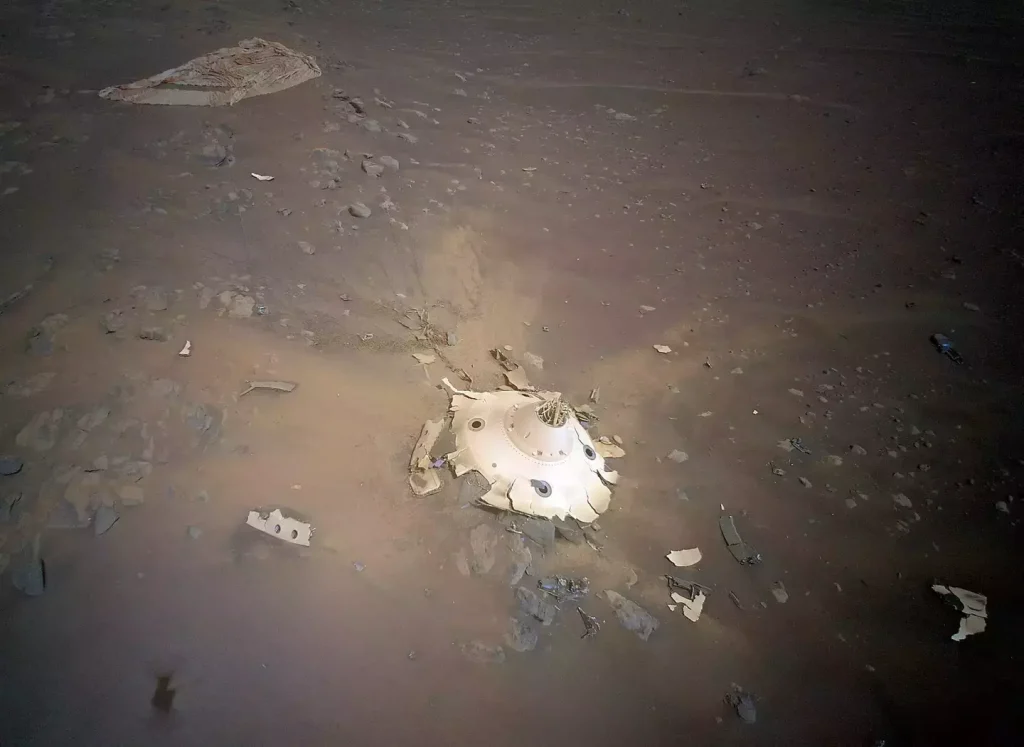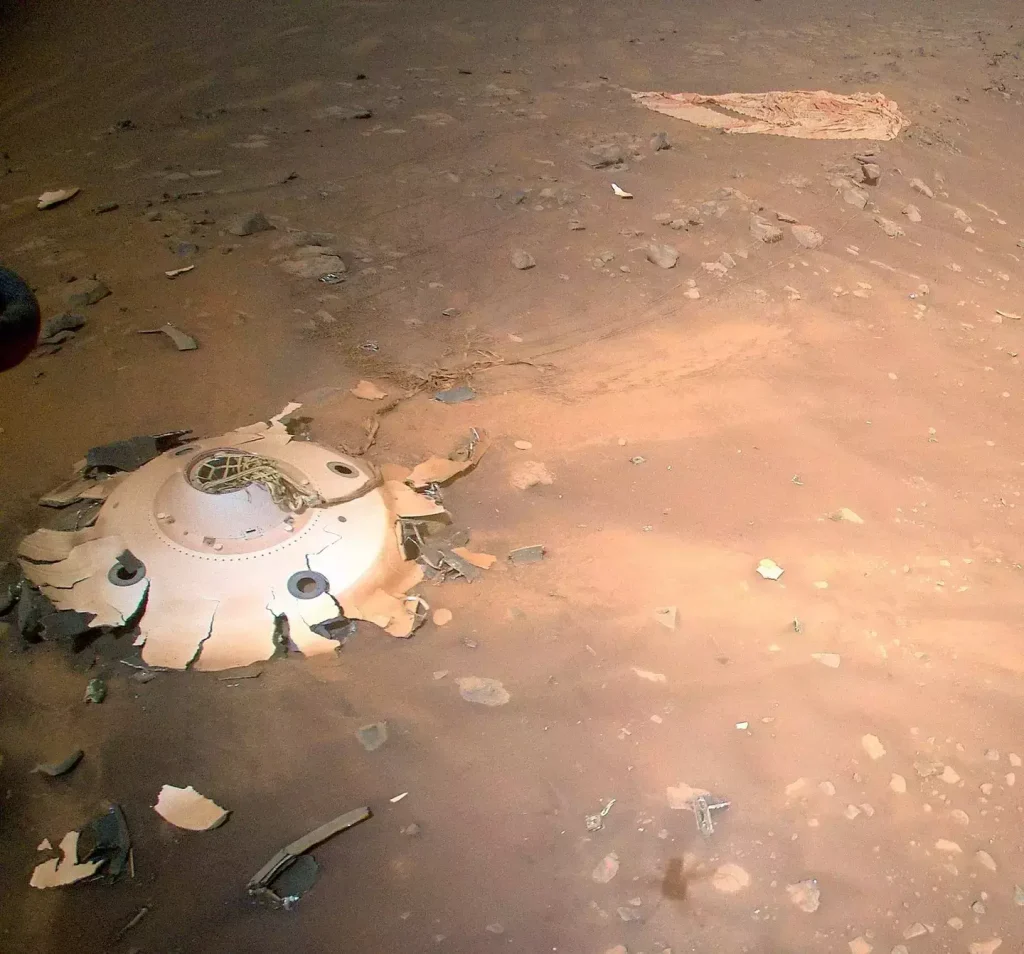A NASA helicopter that completed numerous missions on Mars recently captured a striking image of spacecraft debris scattered across the red Martian landscape.
Naturally, the scene looks “otherworldly”—these images are, after all, taken on another planet. But as we continue exploring beyond Earth, we may need to grow accustomed to seeing signs of human presence on alien terrain.
For now, we can only send technology to distant worlds. Yet, it’s worth noting that powered flight itself is just 121 years old. Imagine how far we might advance by the end of this century.
As part of the Mars 2020 mission, NASA launched the Perseverance Rover, which carried the Ingenuity Helicopter underneath. Initially, Ingenuity was scheduled to complete five flights over the Martian surface.
Remarkably, it went on to achieve 72 flights, becoming the first aircraft to successfully carry out a powered, controlled flight on another planet.

Ingenuity was designed to explore areas the Perseverance Rover couldn’t safely access, capturing images that offer us a closer view of Mars.
In 2022, it took one particularly striking photograph: spacecraft wreckage scattered across the Martian sands, tinted slightly red by its surroundings—a collection of Earth-made objects now resting silently on the distant planet.
Ian Clark, an engineer involved in developing Perseverance’s parachute system, described the sight to The New York Times: “There’s definitely a sci-fi element to it. It exudes otherworldly, doesn’t it?”
“They say a picture’s worth a thousand words, but it’s also worth an infinite amount of engineering insight.”
If you’re wondering whether aliens left these remains, the answer is no—this debris scattered across the Martian sand is entirely man-made.
Though it looks ‘otherworldly’ and straight out of a sci-fi story, this scene isn’t evidence of extraterrestrial life getting close to us or setting foot on Mars.

If we’re discovering spaceship debris on another planet, it’s because we left it there. The NASA helicopter’s find was part of the landing gear used to bring Ingenuity and the Perseverance Rover safely to the Martian surface.
In space, humans have proven to be notorious litterbugs—the orbit around Earth is packed with discarded debris from past missions, cluttering the skies with objects we no longer need.
It seems we may soon be cluttering other worlds with our leftovers too. Perhaps someday, when humans finally set foot on Mars, we’ll clean up these remnants—or perhaps we’ll leave them as markers of human space exploration history.
According to the Natural History Museum, around 2,000 active satellites orbit Earth, alongside nearly 3,000 “dead” satellites that are no longer in use. Thousands more fragments of debris also circle our planet, posing risks to current spacecraft and our future space travel ambitions.





